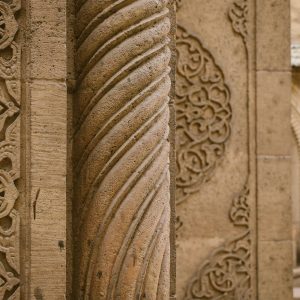Leader of Hindu nationalist group appointed to interfaith council: report
Muslim Americans have expressed concerns about the appointment to an interfaith council of a senior member of an organization associated with a Hindu supremacist group.
Chandru Acharya has been appointed to the Department of Homeland Security’s (DHS) faith-based religious council in order to advise the US government on domestic issues.
According to a report carried by Middle East Eye (MEE), Acharya happens to be the director of the Hindu Swayamsevak Sangh (HSS-USA), a radical Hindu nationalist group that has repeatedly defended the policies of India’s right-wing Prime Minister Narendra Modi.
The HSS claims to be an ‘apolitical organization’ and celebrates Hindu cultural and religious values.
Acharya confirmed his association with HSS-USA but denied any affiliation between his organization and the RSS — a violent Hindu nationalist group responsible for hate crimes against minorities in India. However, RSS is known to be the parent body of the HSS, which functions as its international wing.
The 25-member faith-based security council on the DHS, which includes leaders from several faiths, was set up to provide advice to the secretary on matters “related to protecting houses of worship, preparedness and enhanced coordination with the faith community”.
MEE said it contacted the DHS for comment but had not received a response by the time it published its report.
Hindutva promotion
Ria Chakrabarty, policy director for Hindus for Human Rights (HFHR), said: “The RSS is the ultra-right wing Hindu extremist organization and the founding of the Hindutva ideology, which is a Hindu supremacist and Islamophobic ideology.
“The HSS is the overseas arm of the RSS. We firmly oppose the inclusion of organizations like HSS in any religious freedom council.”
Scholars and activists describe the RSS, formed in 1925 in Nagpur, India, as the backbone of ‘Hindutva’ or the Hindu nationalist movement in India. Its aim is to make India a Hindu Rashtra (Hindu state).
It is under the RSS that the ruling Bharatiya Janata Party (BJP), as well as several other organizations like the HSS and the right-wing religious organization Vishva Hindu Parishad, emerged and proliferated across dozens of countries over the past four to five decades.
The organizations operate separately on an administrative level but ultimately fall under the umbrella of the RSS. Hindu nationalist premier Narendra Modi is a lifelong RSS member.
The HSS and its connected organizations in the diaspora, scholars say, are primarily tasked with amplifying and defending the project of Hindutva (Hindu nationalism) outside India.
Several Indian Americans, including activists and scholars of South Asia, said that it was “very troubling” that a member of a group known to be linked with and inspired by a supremacist organization that sees India’s minorities as second-class citizens has been appointed to a council tasked with shaping the domestic policies of the US government.
MEE quoted Rasheed Ahmed, executive director of the Indian American Muslim Council, as saying: “How can a member of a group whose parent organization in India is implicated in violence against religious minorities and attacks their places of worship be a good fit for this position?
“Regrettably, DHS has chosen an individual representing a supremacist hate group,” Ahmad added.
Denial of religious intolerance in India
According to the MEE report, Acharya had used his position as a Hindu community leader to discredit efforts to raise awareness of rising religious intolerance in India.
In April, Acharya was among a group of Hindu-Americans who questioned the veracity of a United States Commission on International Religious Freedom (USCIRF) report that designated India as a “country of particular concern” over what they found to be diminishing rights for Muslims and Christians in the country.
“The [Indian] government continued to systemize its ideological vision of a Hindu state at both the national and state levels through the use of both existing and new laws and structural changes hostile to the country’s religious minorities,” the USCIRF said.
The USCIRF recommended that the US impose targeted sanctions on individuals or groups responsible for violating religious freedoms.
Acharya was quoted in The Print as describing the findings as “one-sided” and “biased”.
In September 2020, Acharya, as president of South Asian American Voices for Impact, questioned ‘Equality Labs’ — a Dalit civil rights organization’s campaign to draw attention to discrimination against Muslims in India. He actively resisted the spread of awareness regarding Hindu right-wing attempts to scapegoat Muslims for the spread of the coronavirus in India.
Acharya rejected Equality Labs’ online campaign to highlight how disinformation had fuelled Islamophobia during the pandemic.
Conflict of interest
Mobashra Tazamal, a DC-based researcher working on Islamophobia, said that if Acharya refused to accept the findings of the USCIRF report, then it is unclear how he could be trusted to carry out his mandate to protect all faith communities.
“I believe there is a very clear conflict of interest here, and given Acharya’s comments and affiliations, his role in the council would severely impact the impartial nature of the organization,” Tazamal said.
Speaking to MEE, Acharya insisted he could be a fair and honest participant despite his views and affiliations. “I trust my selection was done by the administration based on my body of work and my contributions to the community.”










